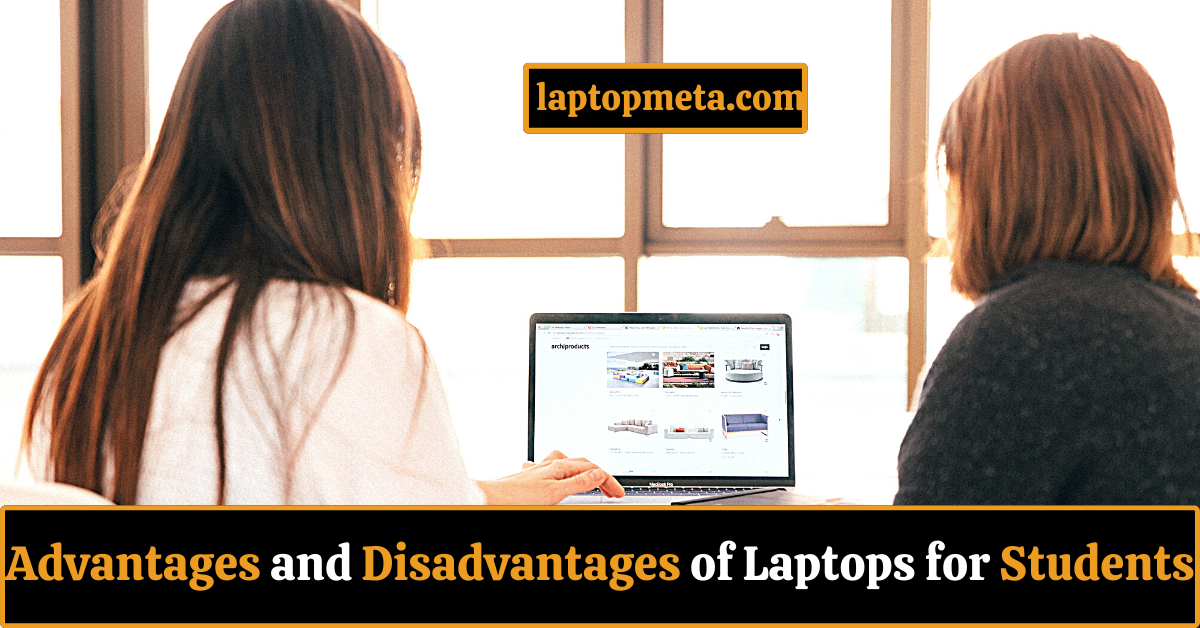As a student, you may be wondering if you should buy a laptop. Advantages and Disadvantages of Laptops for Students is the common question before buying a laptop.
There are many advantages to having one, but there are also some disadvantages. In this post, we will discuss the pros and cons of laptops for students. Stay tuned to learn more!
Table of Contents
What Are the Benefits of Laptops for Students?
Laptops can be extremely beneficial for students in a number of ways. They can help with taking notes, doing research, writing papers, and staying organized.

Additionally, laptops can provide a way for students to stay connected with their classmates and teachers outside of the classroom.
There are a few potential downsides to laptops in the classroom, as well. If not used correctly, laptops can be a major distraction. Additionally, they can be expensive, and some students may not have access to one.
Overall, laptops can be a great asset for students if used properly. When deciding whether or not to use a laptop in the classroom, it is important to weigh the pros and cons to see if it is the right fit for you.
Choosing the best laptop
It is important for students to have a laptop that will fulfill all of their school-related needs. Depending on what field of study they are in, some students may require a more powerful machine than others.

It is also important to consider battery life when selecting a laptop, as students will likely be using their laptops for long periods of time between classes and study sessions. Another factor to consider is the laptop’s portability, as students will need to be able to carry their laptops with them to and from class.
What are the advantages of using a laptop?
There are several advantages of using a laptop for students. One of the main advantages is that laptops are portable and can be taken anywhere.
They are also relatively lightweight, making them easy to carry around. Additionally, laptops have larger screens than most smartphones or tablets, making them ideal for research or writing papers.
Finally, many laptops come equipped with built-in cameras, which can be helpful for staying in touch with family and friends.

Pros of laptops for students
1. They are portable, so you can take them with you wherever you go.
Laptops are more portable than desktop computers, making them ideal for use in classrooms and library settings.
2. You can use them for a variety of tasks, such as taking notes, doing research, and writing papers.
3. They usually have long battery life, so you don’t have to worry about them running out of power during class.
4. You can connect to the internet on your laptop, which can be helpful for doing research or checking your email.
5. They usually have a built-in webcam and microphone, so you can participate in online classes or meetings.
6. Laptops typically have longer battery life than desktop computers, meaning students can use them for extended periods of time without needing to be plugged in.
7. Laptops offer more flexibility than desktop computers in terms of where they can be used. Students can take their laptops with them to coffee shops or other places to work on assignments outside of the home or dorm room.
8. Laptops have become increasingly affordable in recent years, making them a more viable option for students on a budget.
9. Many laptops now come equipped with features that can be helpful for students, such as note-taking apps and cloud storage capabilities.
See also Importance of Laptops in Online Class & Importance of Laptops for Teachers
What are the disadvantages of using a laptop?
There are also several disadvantages of using a laptop for students. One of the main disadvantages is that laptops can be easily lost or stolen.
Additionally, laptops are prone to viruses and other malware, which can corrupt files or even damage the computer.
Another downside is that laptops can be expensive, especially if they are equipped with features like a large screen or a powerful processor.
Finally, some students may find that they are too easily distracted by the many features and applications available on laptops.

Cons of laptops for students
1. They can be expensive, so you will need to save up before you buy one.
2. They are fragile and can break easily, so you will need to be careful with them.
3. They can be a distraction if you use them during class, so you will need to be disciplined when using your laptop.
4. You may need to purchase a separate carrying case or backpack to protect your laptop while you are traveling.
5. They can get stolen easily, so you will need to take measures to protect your laptop.
6. Laptops can be easily misplaced or stolen, and they often do not have the same level of security as desktop computers.
8. Laptops can be more vulnerable to viruses and other malware than desktop computers.
9. Laptops can be easily damaged, and repairs can be expensive.
10. The small size of laptops can make them difficult to use for extended periods of time.
11. Laptops can emit harmful electromagnetic radiation, which can be detrimental to one’s health.
Conclusion
Here Advantages and Disadvantages of Laptops for Students might be cleared. So, should you buy your child a laptop for school? The answer is not so simple.
There are many factors to consider when making this decision, such as the type of courses your child will be taking and how much homework they typically have.
For students who need to do a lot of writing, a laptop can be a great tool. However, for those who don’t require one or simply prefer to write by hand,
See also Best Laptop for Education Purpose
there’s no reason to feel pressured into buying a machine that may end up being more of a distraction than anything else.
Ultimately, it’s important to weigh the pros and cons of laptops for students and decide what works best for each individual learner.
Do you think laptops are necessary tools in education? What are the advantages and disadvantages of laptops for students in your opinion? Let us know in the comments below!

